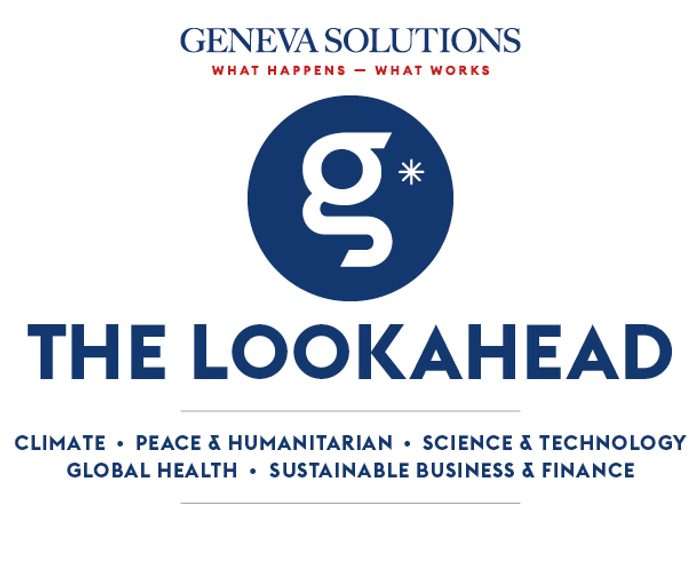Good morning, this is Paula. This week, delegates will huddle in Geneva to find ways of strengthening a treaty aimed at protecting people and the environment against toxic mercury use.
As gold prices and production soar to record levels, some experts say the Minamata convention is falling behind in keeping the liquid metal from entering its supply chain.
On Thursday, the UN climate summit kicks off in the Brazilian Amazon as scientific reports suggest climate action is way off. And pandemic treaty delegates return to talk about the lingering issue pathogen-access-for-benefit-sharing. |

Boats navigate the Nanay River, in the Loreto region of Peru, where tests have found “chronic exposure” to mercury among members of Indigenous communities, 23 March 2021. (Keystone/AP Photo/Rodrigo Abd, File)
|
|
|
🌍VIP ONLY.
Taking place a few days earlier than originally planned due to logistical issues, world leaders will gather in Belém for the high-level segment of Cop30 on Thursday and Friday before climate negotiations begin in earnest.
|
|
Setting the temperature.
With two thirds of countries yet to announce their climate plans for the next decade, as required by the Paris agreement, much attention will be on last-minute announcements by those who punch in this week.
The UN warned that to date, NDCs – as CO2-cutting plans are known in Cop jargon – will reduce emissions by 10 per cent, still widely insufficient, leaving the planet to an inevitable overshoot of the 1.5°C target.
|
|
To-do list
As the annual meetings hit their 10 year mark since Paris, the Brazilian host presidency has summoned countries to hone in on implementing commitments made.
This includes finding ways to move away from fossil fuels, as agreed two Cops ago in Dubai, through a “just transition” plan away from fossil fuels.
|
|
Talks on climate finance, specifically for adaptation – up for renewal in Belém – are set to be a nail-biter amid shrinking donor budgets, reflected in a recent UN Environment Programme report highlighting further drops in assistance to help countries adapt to climate impacts.
With André Aranha Correa do Lago, Cop30 president-designate, having dedicated the two-week meeting to adaptation, developing countries are hoping a package of indicators intended to help guide and oversee national adaptation policies in sectors such as agriculture, water and health, may be finalised.
|
|
📝CLIMATE SCIENCE GO-AHEAD.
Climate scientists working on the next cycle of reports for the UN Intergovernmental Panel on Climate Change can start work already in December, following decisions taken at last week’s plenary meeting in Lima.
Governments finally agreed on the scientific content of a controversial new report on carbon capture. IPCC reports, which US-funded scientists have been prohibited from contributing to, are key for informing decision-makers on the state of the climate.
The Geneva-based organisation’s budget for 2026 was also greenlighted. IPCC however did not respond to questions regarding its size and US contributions.
|
|
💉SHARING IS CARING.
Delegates will take another jab this week at negotiations on a platform that should allow pharma to access pathogen data collected by governments in exchange for some of the benefits that may arise from vaccines and other medical products. It’s the last remaining piece of the pandemic treaty.
A first draft published last Wednesday will serve as the basis for discussions.
|
|
Party crasher.
One of the issues of discussion will likely be who gets the ear of negotiators. Pharma has raised its hand, according to reports by Geneva Health Files – a prospect sidelined already by some countries in the past over its potential conflicts of interest.
|
|
– By Paula Dupraz-Dobias and Michelle Langrand
|
|
|
GS news is a new media project covering the world of international cooperation and development. Don’t hesitate to forward our newsletter!
Have a good day!
|

|
|
Avenue du Bouchet 2
1209 Genève
Suisse
|
|
|
|








